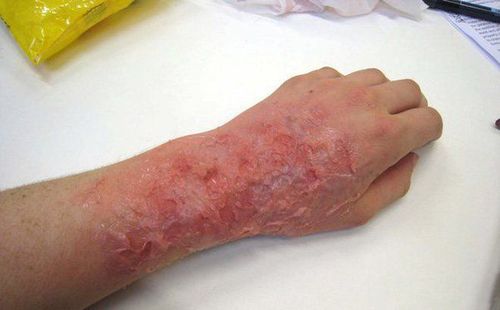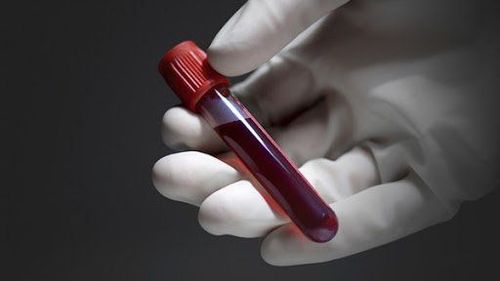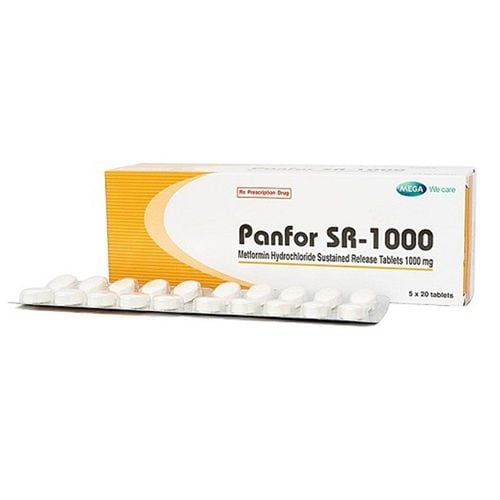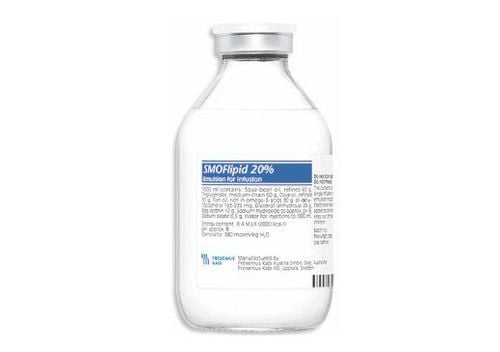This is an automatically translated article.
Phosphate is a compound that exists in the body that contains phosphorus. It is very important because it participates in bone formation, a fundamental factor in the transport and metabolism of energy in cells. Therefore, hypophosphataemia is very dangerous and can occur even with normal phosphate stores due to various causes.
1. Causes of hypophosphataemia:
Hypophosphatemia is diagnosed when the serum phosphate level is less than 2.5 mg/dL. Groups of causes of hypophosphataemia include:
1.1. Reduced supply or absorption of phosphate:
Hungry. Insufficient phosphate parenteral nutrition. Vitamin D deficiency or resistance. Malabsorption syndrome or small bowel bypass. Inhibition of phosphate absorption due to oral bicarbonate or aluminum hydroxide.
1.2. Phosphate is greatly lost due to:
Increased urinary phosphate excretion due to drugs: diuretics, theophylline, corticosteroids, bronchodilators. Primary or secondary hyperparathyroidism. Pathology of increased urinary phosphate excretion in the renal tubules. Decreased blood potassium. Treatment of diabetes is not stable. Alcoholism . Osteoporosis due to malignancy.
1.3. Increases phosphate transport into cells:
Use multiple (transient) sugars. Anabolic steroids, estrogen, oral contraceptives. Respiratory alkalosis. Salicylate poisoning.
1.4. Electrolyte disturbances:
Hypercalcemia, hypomagnesemia, metabolic alkalosis,...
1.5. Increased phosphate loss due to inadequate resuscitation:
Acidosis due to diabetes. Later stages of starvation or increased catabolism persist. Alcoholism especially when being treated for malnutrition. Respiratory alkalosis. Severe burns.
2. Symptoms of hypophosphataemia:
When hypophosphataemia, the affinity of red blood cells for oxygen increases, due to a decrease in the enzyme 2,3 diphosphoglycerate red blood cells, leading to a decrease in oxygen supply to tissues, a decrease in cell metabolism, which highlights symptoms such as weakness, myasthenia , even rhabdomyolysis. Alcoholics often have severe hypophosphatemia due to both inadequate supply and alkaline blood.
Severe, acute hypophosphataemia can cause symptoms such as:
Acute hemolysis due to fragile red blood cells. Ease of infection due to decreased chemotaxis of leukocytes. Easy bleeding due to platelet dysfunction. Rhabdomyolysis. Encephalopathy: excitation, confusion, speech disturbances, convulsions, coma. Heart failure.
3. How to treat hypophosphataemia?
To manage hypophosphataemia, the following principles should be followed:
Treat the underlying disorder and add oral phosphate if the patient is asymptomatic. Use intravenous phosphate when serum phosphate is less than 1 mg/dL or the patient has severe symptoms such as rhabdomyolysis, hemolysis, neurological symptoms, or is unable to supplement orally due to an underlying disorder. Note that it is necessary to closely monitor calcium and phosphate levels during treatment, especially when using intravenous phosphate or in patients with impaired renal function. In most cases, no more than 7 mg/kg should be given in 6 hours. Monitor to avoid hypocalcaemia, hyperphosphatemia and calcification due to excessive calcium phosphate products.













